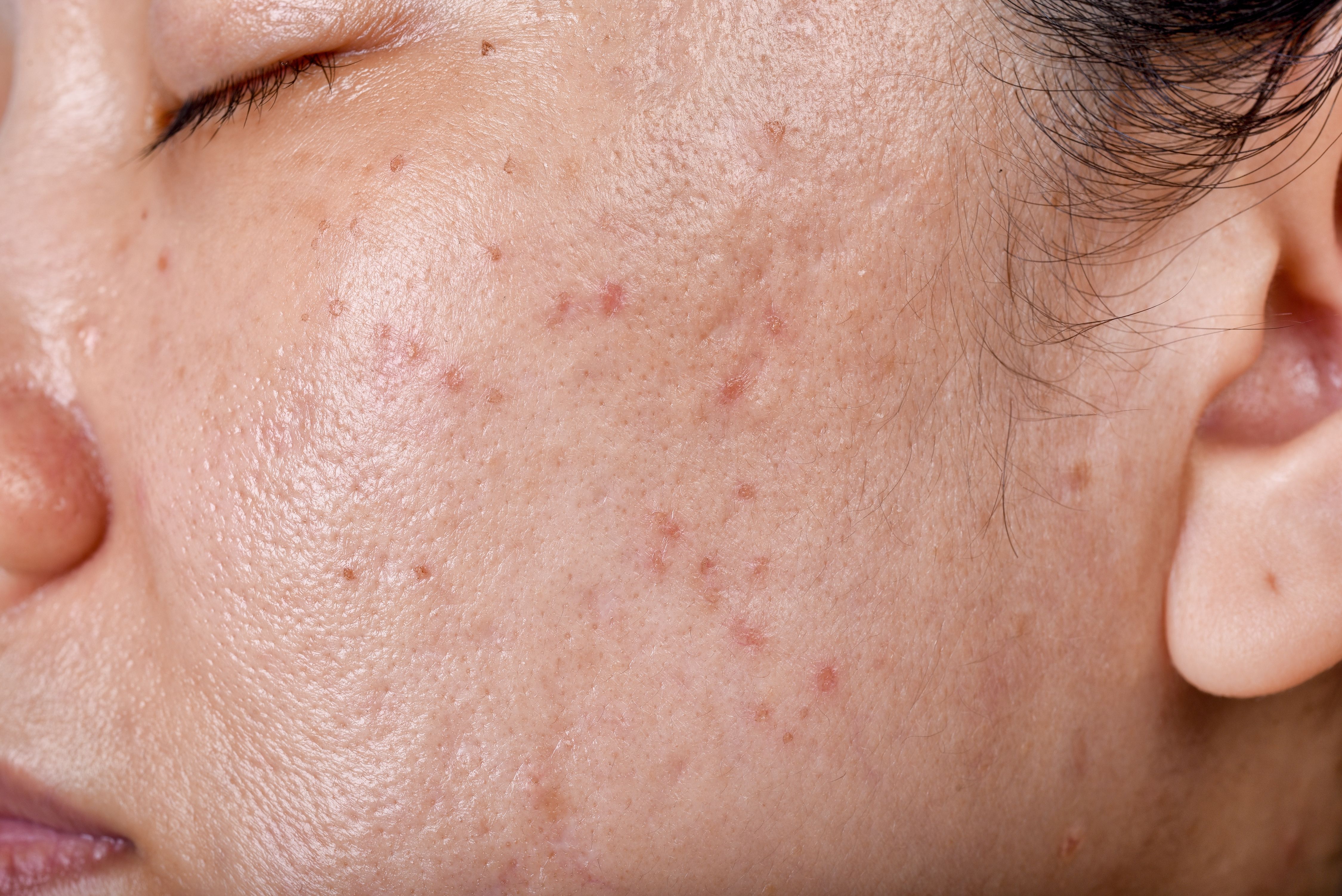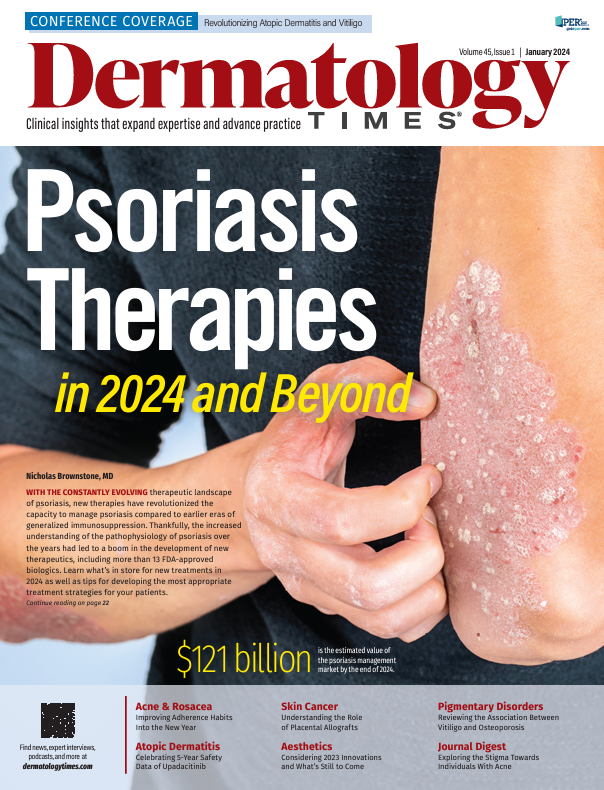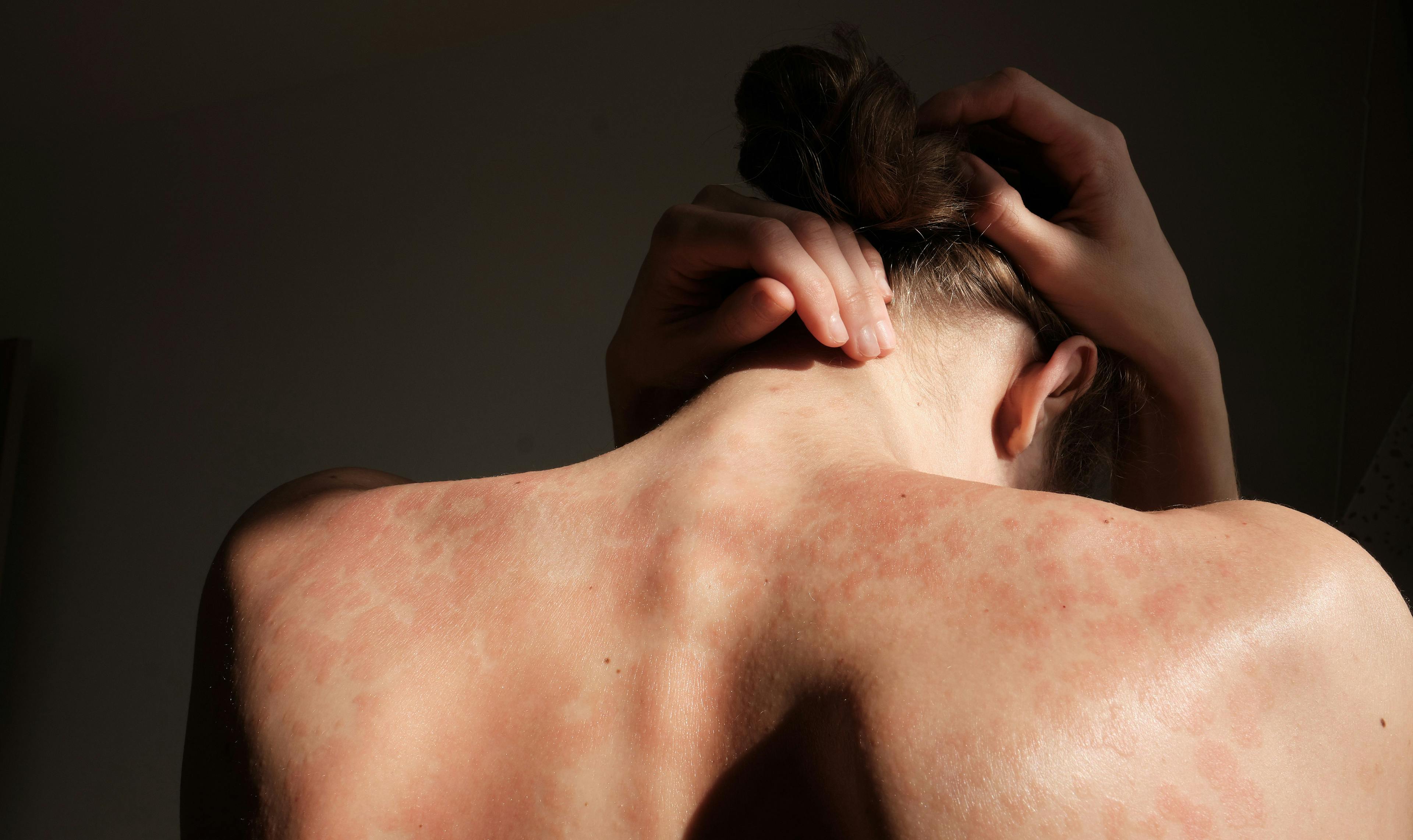- Acne
- Actinic Keratosis
- Aesthetics
- Alopecia
- Atopic Dermatitis
- Buy-and-Bill
- COVID-19
- Case-Based Roundtable
- Chronic Hand Eczema
- Chronic Spontaneous Urticaria
- Drug Watch
- Eczema
- General Dermatology
- Hidradenitis Suppurativa
- Melasma
- NP and PA
- Pediatric Dermatology
- Pigmentary Disorders
- Practice Management
- Precision Medicine and Biologics
- Prurigo Nodularis
- Psoriasis
- Psoriatic Arthritis
- Rare Disease
- Rosacea
- Skin Cancer
- Vitiligo
- Wound Care
News
Article
Dermatology Times
Ensure Your Patients Don’t Drop the Ball
Author(s):
This article will discuss insights from research studies and offer specialized guidance aimed at dermatologists in hopes of fostering patient adherence in acne management.
In the realm of dermatology, acne stands as an omnipresent challenge, impacting not just the skin but also affecting patients’ psychological well-being.1 Although many treatment options exist, the efficacy of these interventions is intricately tied to patient adherence.2 As we approach a new phase in dermatology practice, it is imperative to explore adherence strategies and tailor them to dermatological settings to enhance patient outcomes. This article will discuss insights from research studies and offer specialized guidance aimed at dermatologists in hopes of fostering patient adherence in acne management.
Understanding Adherence
Adherence to an acne treatment regimen constitutes the bedrock of successful outcomes in dermatological practices.3 Clinical investigations unequivocally underscore the crucial correlation between adherence levels and the efficacy of acne treatments.3
Within the context of dermatology, understanding the nuanced challenges patients encounter in adhering to prescribed routines is paramount. The forgetfulness paradigm, often exacerbated by the demands of modern life, is a common barrier.4 Remembering to adhere to a meticulous skin care regimen or medication schedules amid daily commitments poses a significant challenge, contributing to sporadic adherence and consequently undermining the treatment’s efficacy.4
Moreover, the complexity inherent in some acne treatment regimens within dermatological practices represents another hurdle.2 The multistep nature, diverse product applications, and intricate methods involved in certain therapies can overpower patients. Such complexity can lead to confusion, noncompliance, or incorrect usage, substantially impacting treatment efficacy.
Furthermore, the temporal delay in observing results from acne therapies presents a unique challenge within dermatology.4 Patients often anticipate immediate improvements, yet numerous acne treatments exhibit a gestation period before visible changes manifest. This deferred gratification may dampen patient motivation, resulting in discontinuation or irregular adherence to the prescribed therapy.
Discussing Habit Formation in Dermatology
In dermatology, fostering habits conducive to managing acne is pivotal for successful treatment. Encouraging patients to set realistic skin care goals within the scope of dermatology, while emphasizing gradual progress, can nurture sustainable motivation. Aligning acne management with existing habits helps integrate skin care routines seamlessly into patients’ lives, ensuring better adherence to prescribed regimens.2
Guiding patients in specifying when, where, and how they plan to adhere to treatment regimens can also enhance commitment.2 Identifying triggers that prompt adherence behaviors and linking them to skin care routines reinforces habit formation. Emphasizing the significance of a supportive environment, involving family or friends, provides additional motivation and accountability.2
As the new year dawns, dermatologists have a unique opportunity to align acne management goals with patients’ resolutions. Capitalizing on the motivational energy associated with resolutions may inspire patients to commit to their treatment routines, ultimately improving outcomes and enhancing quality of life.
Strategies for Effective Adherence
Patient Education and Communication
In the domain of dermatology, empowering patients with comprehensive education about their condition and the intricacies of prescribed treatments assumes paramount importance. Detailed discussions regarding treatment rationale, potential adverse effects, and realistic expectations foster an alliance between dermatologists and their patients.5
Simplifying the Regimen
Streamlining treatment regimens within dermatology practices is pivotal. Reducing the complexity and minimizing the number of products can significantly augment adherence.2 A concise and more manageable routine is more likely to be followed diligently.
Customized Plans and Use of Reminder Systems
Adopting a patient-centric approach by tailoring treatment plans to individual patient needs is imperative. Taking into account lifestyle constraints and patient preferences when crafting a regimen is crucial in enhancing adherence.2
Also, leveraging technology for personalized reminders on medication application or skin care routines is a powerful way to ensure consistency and adherence.2 Apps or digital tools tailored to individual needs provide timely prompts, which can assist patients in sticking to their regimen. These reminders not only address forgetfulness but also engage patients while tracking progress, which can ultimately improve treatment outcomes.
Positive Reinforcement
Acknowledging progress and achievements during follow-up appointments is pivotal. By celebrating milestones, dermatologists have the ability to boost patient morale, emphasizing the significance of adherence and fostering continuous motivation. This positive reinforcement not only provides validation but also inspires patients to stay committed to their skin care routines, contributing to better treatment outcomes.
Conclusion
In the realm of dermatology, effective acne management requires more than just treatment plans—it demands consistent and intentional patient adherence. Tailoring strategies to fit the dermatological landscape and relying on evidence-based approaches can notably improve patient adherence. Seizing the momentum of resolutions can be a driving force, encouraging patients to dedicate themselves more steadfastly to their treatment routines.
Isabella Tan is from Potomac, Maryland, and is a second-year medical student at Rutgers Robert Wood Johnson Medical School in New Brunswick, New Jersey.
References
- Stamu-O’Brien C, Jafferany M, Carniciu S, Abdelmaksoud A. Psychodermatology of acne: psychological aspects and effects of acne vulgaris. J Cosmet Dermatol. 2021;20(4):1080-1083. doi:10.1111/jocd.13765
- Moradi Tuchayi S, Alexander TM, Nadkarni A, Feldman SR. Interventions to increase adherence to acne treatment. Patient Prefer Adherence. 2016;10:2091-2096. doi:10.2147/PPA.S117437
- Habeshian KA, Cohen BA. Current issues in the treatment of acne vulgaris. Pediatrics. 2020;145(suppl 2):S225-S230. doi:10.1542/peds.2019-2056L
- Snyder S, Crandell I, Davis SA, Feldman SR. Medical adherence to acne therapy: a systematic review. Am J Clin Dermatol. 2014;15(2):87-94. doi:10.1007/s40257-014-0063-y
- Sevimli Dikicier B. Topical treatment of acne vulgaris: efficiency, side effects, and adherence rate. J Int Med Res. 2019;47(7):2987-2992. doi:10.1177/0300060519847367
Newsletter
Like what you’re reading? Subscribe to Dermatology Times for weekly updates on therapies, innovations, and real-world practice tips.
















